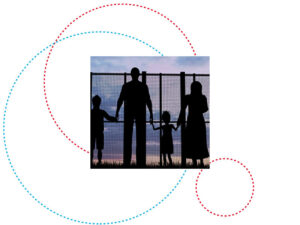The University of Luxembourg has been awarded a Horizon 2020 grant for research on the integration of young migrants. The MIMY–project assesses integration policies and strategies across the EU with the aim to support EU integration strategies and to empower young migrants in vulnerable situations.
Researchers from the University of Luxembourg will work together with colleagues from 11 European partner universities to analyze EU migration policies, regional economic and social systems as well as individual practices. They will examine long-term socio-economic effects of successful and failed integration, identify the factors fostering or hindering integration processes and determine how social actors and institutions can support young migrants’ agency by further strengthening their resilience and resistance strategies.
The MIMY-project will demonstrate which integration strategies and policies can successfully support the empowerment of young vulnerable migrants to become active citizens within an inclusive society. Migrants will actively participate in the project and work as peer researchers. This gender-sensitive and migrant-centred approach will enable the researchers to set up evidence-based recommendations helping to push forward policy and practice innovation in the field of migrant youth integration in Europe.
“We are honoured to coordinate this timely project, which gives us once again the opportunity to showcase that the University of Luxembourg and the Faculty of Language and Literature, Humanities, Arts and Education are on the forefront of excellent migration research in Europe”, says Jutta Bissinger, one of the researchers involved in the project.
Associate Prof. Birte Nienaber from the University of Luxembourg, who coordinates the MIMY-project, is currently preparing the consortium agreement after a positive evaluation of the proposal on migration. Prof. Birte Nienaber is currently involved in 7 different EU-funded projects.
The MIMY-project is funded with 2.999.998 € and will run from 1 February 2020 to 31 January 2023.
